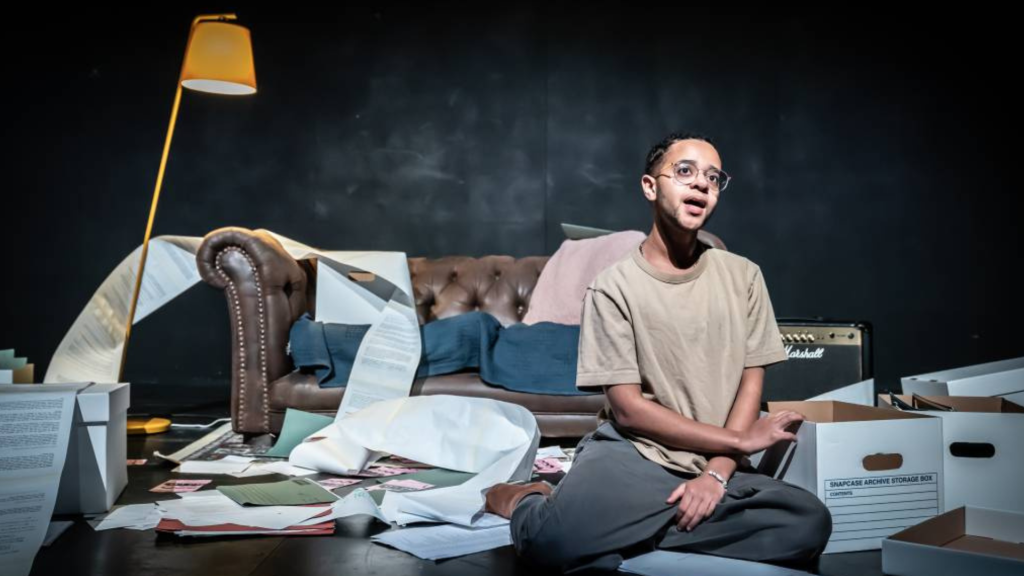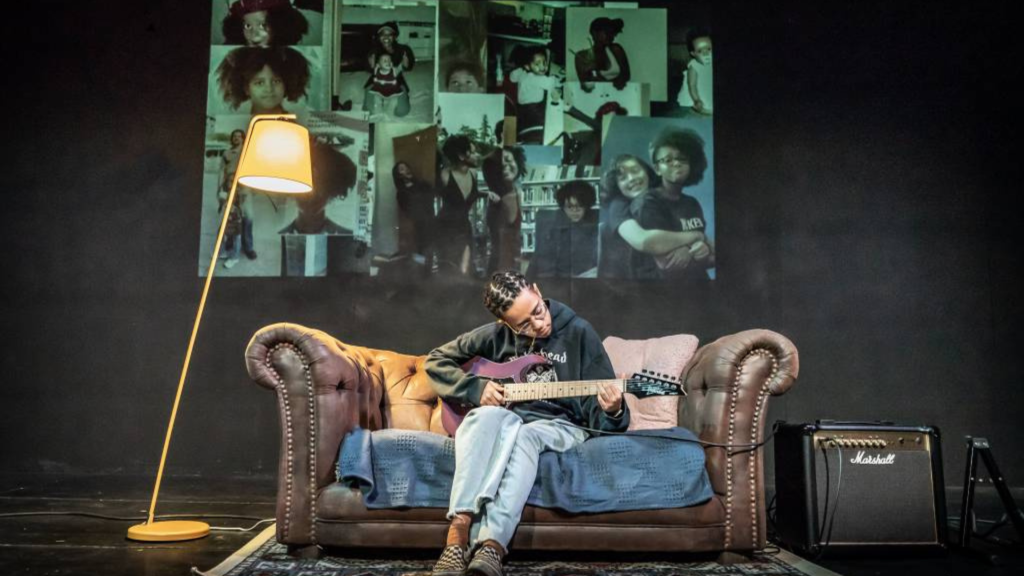NO I.D., written and performed by Tatenda Shamiso and directed by Sean Ting-Hsuan Wang, is an honest yet hopeful depiction of the struggles of living as a Black transgender immigrant in modern Britain.
Within the hour-long runtime, Shamiso guides us through the transition from Thandie. Through old photographs, shakily recorded videos, and accounts from friends, we understand who Thandie was – ‘a gem’, who ‘always lit up the room wherever she went’. A musical theatre nerd, struggling with the gender she was assigned at birth, but, hoping she would eventually grow into being a girl.
A few years, a move across the world, and a second puberty later, we watch the blossoming of Tatenda, a transgender man attempting to find his place in a country that seems so eager to shut him out.

The intimacy of the piece is built through an hour-long monologue (or perhaps, dialogue) as soon as you enter. We are in a bedroom, Tatenda’s room, as he attempts to telephone the NO I.D. phone line, to establish his new identity. Sadly, such a phone service does not exist, and in its replacement is the frustratingly hostile and invasive structure one has to navigate through when seeking gender-affirming care and revising legal documentation.
Within a structure that seeks to strip him of his humanity, Shamiso provides us with an insight into the reality of his lived experience, at one point removing his clothes to show us ‘a trans body’. There’s a certain level of openness and candor that Shamiso evokes, a vision into the highs and lows, from the anger-inducing to the euphoric.

Battling through an endless tornado of paperwork, Shamiso attempts to navigate psychiatric reports, deed polls, and a ‘billion‘ forms that eventually clutter the stage (designed by Claudia Casino). One particularly poignant scene comes during a meeting with the GP, whose assessment of whether Shamiso satisfies the diagnostic criteria for gender dysphoria pairs with a magnified scan of his body. Under black lights and a torch (lighting by Zoe Beeny), we witness the restrictive prescription on who can be deemed worthy of medical intervention. Not the person who ‘loved Barbies’ and ‘hated Lego’, but someone who must ‘perform transness’ suitably enough to be granted care and support.
Some of the most tender moments of the play come when Tatenda shares a musical performance with Thandie, a duet combining the past and present, with the lower tones of Shamiso’s harmony complementing his own, his old, voice. Through the lyrics, of living in a body that weighs them down, we understand the levels of Shamiso’s dysphoria. With his new self, his real self, Tatenda promises to remember Thandie and looks forward to what is next. I, for one, would love to see more.
No I.D. ran at the Royal Court’s Jerwood Theatre from Tuesday 18th April – Saturday 06 May. Find out more here.
